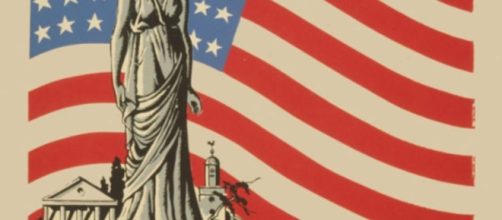There are now forty-five states led by both Republicans and Democrats that have declared that they would only turn over a minimum of information based on their individual privacy and voting rights statutes, or no information at all. With the concern that Trump and Conservatives could possibly find a way to force states to disclose all the information being requested by Trump's Commission on Voter Integrity, Democrats are fighting back. Although Kansas' Kris Kobach, the Committee Vice-Chair, has sworn for years that voter fraud by illegal residents is rampant, a 2014 study found only 31 credible instances of in-person voter fraud out of the more than one billion ballots that were cast between 2000 and 2014.
New Jersey (D) Cory Booker introduces the Anti-Voter Suppression Act in the U.S. Senate
Cited in a Press statement by Tanya Arditi from the Center for American Progress Senator Booker was quoted as saying, "People are more likely to be struck by lightning than commit voter fraud." The intent of the law is to completely defund the Trump Commission. If passed by both the U.S. Congress and the U.S. Senate, the proposed legislation would also bring an end to the Trump Administration's attempt to try and prove widespread voter fraud in the 2008 and 2016 presidential elections (voter information is being requested back to 2006). Senator Mazie Hirono (D-HI), Congressional Black Caucus Chairman Congressional Representative Cedric Richmond (D-LA), Congressional Hispanic Caucus Chairwoman Michelle Lujan Grisham (D-NM), and Congressional Asian Pacific American Caucus Chairwoman Judy Chu (D-CA), all helped introduce the bill.
Vice President for Legal Progress at the Center for American Progress backs the legislation
The center believes, like many Americans, that Trump and his administration could end use the guise of “voter fraud” to justify making it harder for certain Americans to vote by using Trump and Conservative anti-immigration laws to explain their reasoning. To date, the U.S. Congress and its Conservative Republican majority have done nothing to stop the passage of strict and difficult voter registration laws that have been passed by multiple states since 2011. Most Congressional representatives also support Trump's Commission of Voter Integrity. Michele Jawando was cited as saying that rather than wasting time and resources investigating an inconsequential problem, the federal government should be ensuring that more Americans can participate in our democracy instead of Trump's obsession over losing the popular vote in the 2016 election.
Voting is a fundamental right in our democracy
Although the primary goal of the Anti-Voter Suppression Act is to bring an end to President Trump's Commission on Voter Integrity and it's intrusion into the rights of voters, including keeping who Americans voted for private, some see the legislation as shoring up the Voting Rights Act. In 2013, Conservative Justices on the U.S. Supreme Court, led by Chief Justice John Roberts, struck down the 4th Amendment of the Voting Rights Act, citing the premise under which it was written is no longer supported by current data. That decision has led to an increase in the number of Suppressive Voting Rights laws being passed in the past three and a half years.
The Chair of the Congressional Black Caucus gave a speech before the U.S. Senate that included a reminder that the parents and grandparents of Americans fought and died to create, protect, and sustain Democracy and that the Act would protect future generations of voters.


